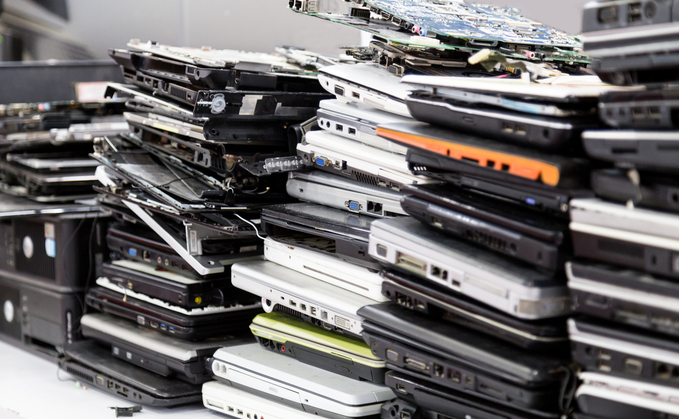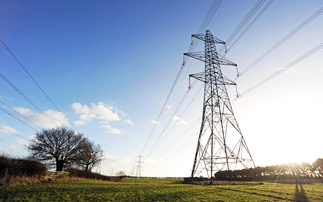Credit: iStock
Little progress has been made to encourage the public to re-use and recycle electronic products since last EAC report, MPs find
MPs have today accused the government of failing to fully grasp the scale of the "e-waste tsunami" threatening to overwhelm the UK's environmental goals, and questioned why so little progress has been made to tackle the environmental impact of electronic items.
The government accepted one and part-accepted 22 out of 27 recommendations from the The Environmental Audit Committee's (EAC) November 2020 inquiry into Electronic Waste and the Circular Economy.
But in an update today, the Committee said there had been little improvement to e-waste policies in the intervening four years and called for more to be done to embed circular economy practices across the economy that encourage the extended use, re-use, and recycling of electronic products.
In its 2020 report, the EAC concluded the manufacture of electronic items from raw materials can cause significant human and environmental damage, leading to higher carbon emissions, inefficient use of resources, and the release of toxic chemicals.
The Committee today said it was encouraged to see that online marketplaces are to be subject to producer responsibility requirements and welcomed that proposals for mandatory collection of e-waste were included in the government's current Electrical waste: reforming the producer responsibility system consultation.
But the EAC expressed concern at the government's "narrow focus" on tackling e-waste, arguing the current consultation fails to address many of Committee's earlier recommendations for encouraging more circular practices.
For example, MPs claim proposals such as ensuring products sold on online marketplaces are compliant with the law and making electrical items safe to repair for the consumer are missing from the government's plans.
As such, the EAC has written to Environment Secretary Steve Barclay to express its concerns and set out a number of recommendations on how to tackle the "tsunami" of e-waste.
"When the Committee reported on e-waste in 2020, each UK household had 20 unused electronic items hoarded at home, and there were enough unused cables in UK households to go around the world five times," said EAC chair Philip Dunne. "Despite these extraordinary statistics, it appears the government is yet to grasp fully the scale of the e-waste tsunami.
"It is not just the amount of waste created in the sector through planned obsolescence or insufficient recycling schemes, but the significant environmental impact of creating the products in the first place. For example, when disposed of incorrectly, toxic chemicals can leak into the surrounding environment. The precious metals needed for our mobile phones, tablets or headphones are needed for Net Zero Britain and renewable energy infrastructure."
A Defra spokesperson said: "Every year millions of household electricals across the UK end up in the bin rather than being correctly recycled or reused. This is a waste of our natural resources and has to stop.
"We are taking clear action on this issue - including proposals to make it easier to recycle and reuse unwanted gadgets and electricals and a ban on disposable vapes which represent a huge and growing stream of hard-to-recycle waste. We will continue to drive forward our ambitions to move to a more circular economy."
Last year, a study by online price comparison and switching service by Uswitch predicted the UK will become the world's largest contributor of e-waste per capita in 2024, while research by tech retailer Currys in December 2023 claimed that despite 75 per cent of Brits being concerned about e-waste, 60,000 tonnes of tech trash is produced every fortnight.
The EAC's calls come days after Defra and tech retailer Currys launched 'Trash Tycoon' - a campaign launched through the online video game Fortnite - which hopes to highlight growing e-waste levels to the more than 18 million Brits who play the game.
The campaign seeks to inspire Gen Z to make better choices when binning unused, unwanted, or even broken tech by creating an in-game map made entirely from visual representations of the 880 million unused and broken tech items hoarded in UK homes.
The game challenges players to go head-to-head on a mission to mine and recycle as much trash as possible for valuable in-game and in real life rewards worth over £1,000.
Research published by Currys to support the campaign found that two-thirds of young people are more likely to bin their tech trash over recycling, and that nearly a quarter do not understand how to dispose of old tech.
Announcing the campaign, Environment Minster Robbie Moore said: "I hope tackling e-waste in the virtual world can help younger generations understand the importance of responsible waste disposal in the real world.
"It's vital we turn the tide of e-waste, which sees 155,000 tonnes of electrical waste thrown in the bin every year. This is why we have set out new proposals to make it easier for householders to recycle their electrical goods and to spark the move to a more circular economy."
Moira Thomas, director of sustainability at Currys, said she was "optimistic" when it comes to the future of e-waste.
"As the UK's largest tech retailer, we know people, particularly Gen Z, want to recycle their old tech, but there is a lack of knowledge of how to do so responsibly," she added.
"That's why we're confident Trash Tycoon will break down barriers, helping people better understand the issue of e-waste, in a language they can relate and take inspiration from through the hugely popular game of Fortnite."
However, Dunne insisted that a wave of bolder policy interventions was needed from government to tackle the problem. "Four years on [from the EAC's last report on e-waste], we are yet to see many of these initiatives make it into policy or be reflected in its current consultation on e-waste," he said. "I look forward to receiving the Environment Secretary's response to see how EAC's recommendations can help mould this critically important piece of government policy."
Want to understand what is going on at the cutting edge of sustainability? Check out BusinessGreen Intelligence - the premier information for professionals focused on the UK's green economy.











